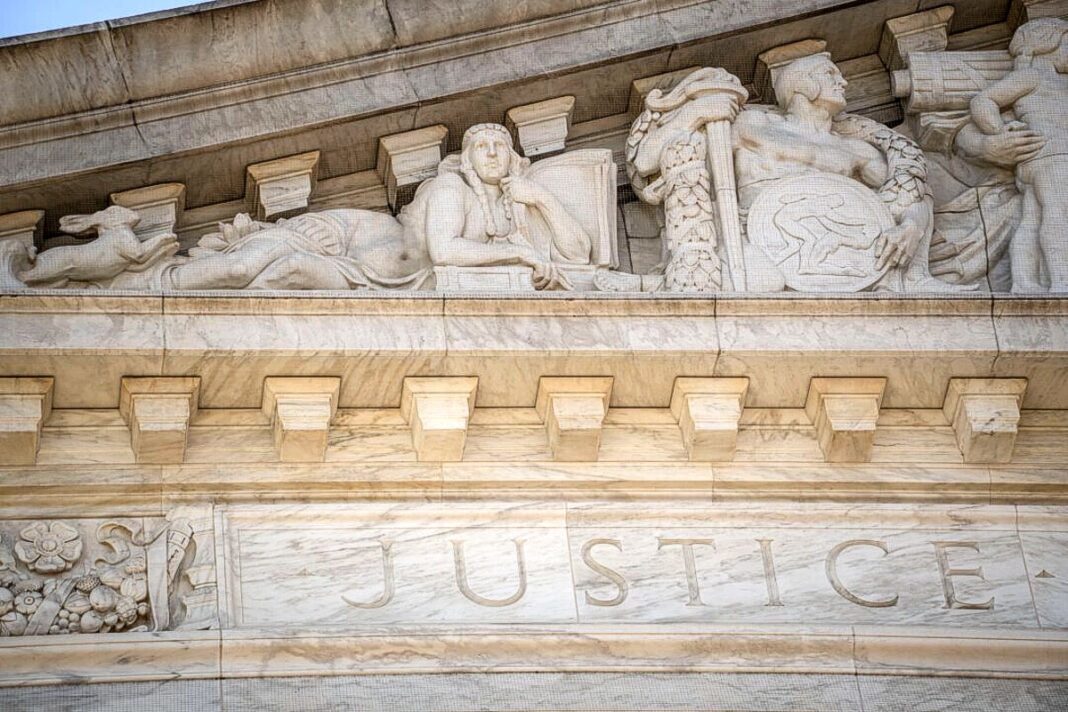In a 6-3 decision, the high court found that federal judges exceeded their authority in imposing universal blocks on Trump’s birthright citizenship order.
The Supreme Court partially allowed President Donald Trump’s birthright citizenship executive order on June 27 in a decision that said universal injunctions likely exceed courts’ authority.
The 6–3 decision didn’t offer a final ruling on the constitutionality of Trump’s attempt to limit birthright citizenship but instead focused on whether three nationwide injunctions blocking the policy could stand.
The majority of the court said that “universal injunctions likely exceed the equitable authority that Congress has given to federal courts.”
“The Court grants the Government’s applications for a partial stay of the injunctions entered below, but only to the extent that the injunctions are broader than necessary to provide complete relief to each plaintiff with standing to sue,” it said.
More specifically, the court said that the Judiciary Act of 1789 had not granted courts such broad authority.
Writing for the majority, Justice Amy Coney Barrett said that “when a court concludes that the Executive Branch has acted unlawfully, the answer is not for the court to exceed its power, too.”
Justices Sonia Sotomayor, Elena Kagan, and Ketanji Brown Jackson dissented.
Writing for the dissent, Sotomayor said the court had “abdicate[d] its vital role” in fighting for the survival of the nation’s democracy.
She said that Trump had made a mockery of the Constitution. “Rather than stand firm, the Court gives way,” she said.
Republicans have raised concerns that the practice of issuing nationwide relief, which has grown in recent years, exceeds the parameters that Article III of the Constitution sets up for courts’ authority.
That portion of the Constitution says the judicial branch has power over “cases” and “controversies.”
Senate Judiciary Committee Chairman Chuck Grassley (R-Iowa) has accused judges of exceeding that authority by granting relief to parties not before the court.
The majority noted, however, that they were not taking a position on whether Article III of the Constitution, which grants courts judicial authority, foreclosed the ability of judges to issue nationwide injunctions. Solicitor General D. John Sauer had attempted to use Article III as a basis for challenging the nationwide blocks on Trump’s birthright citizenship order.
By Sam Dorman
Read Full Article on TheEpochTimes.com
What They’re Saying
Attorney General Pamela Bondi: Today, the Supreme Court instructed district courts to STOP the endless barrage of nationwide injunctions against President Trump. This would not have been possible without tireless work from our excellent lawyers
@TheJusticeDept and our Solicitor General John Sauer. This Department of Justice will continue to zealously defend
@POTUS’s policies and his authority to implement them.
Today, the Supreme Court instructed district courts to STOP the endless barrage of nationwide injunctions against President Trump. This would not have been possible without tireless work from our excellent lawyers @TheJusticeDept and our Solicitor General John Sauer.
— Attorney General Pamela Bondi (@AGPamBondi) June 27, 2025
This…
President J. Donald Trump: GIANT WIN in the United States Supreme Court! Even the Birthright Citizenship Hoax has been, indirectly, hit hard. It had to do with the babies of slaves (same year!), not the SCAMMING of our Immigration process. Congratulations to Attorney General Pam Bondi, Solicitor General John Sauer, and the entire DOJ. News Conference at the White House, 11:30 A.M. EST.








